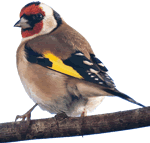I came across the German word Rundfunk the other day and it just appealed to me, so I thought I’d find out more about it.
Rundfunk /ˈʀʊntfʊŋk/ means broadcasting, radio, wireless or broadcasting company/corporation, though would probably also be a good name for a band.
It also appears in such expressions as:
– Rundfunkansager – radio announcer
– Rundfunkgesellschaft – broadcasting company
– Rundfunksendung – radio programme
– Rundfunksender – radio transmitter
Rund /ʀʊnt/ means round, rounded, circular, spherical, plump, about, roughly, flatly, and comes the Middle Low German runt, from the Old French ront, from the Latin rotundus (round), from rota (wheel, disk), from the Proto-Indo-European *Hroth₂-o- (wheel) [source] – the same root as the English word round.
Some words and expressions featuring rund include:
– Rundbank – circular bench
– Rundbau – rotunda
– Rundblick – panorama
– Rundung – curve
– eine Runde machen – to go for a walk / ride – similar to the Welsh expression, mynd am dro (to go for a turn)
– eine Runde schlafen – to have a kip (sleep)
– rund um die Uhr – right (a)round the clock
– jetzt geht’s rund – this is where the fun starts
– es geht rund im Büro – there’s a lot on at the office
Funk /ˈfʊŋk/ appears in radio-related compounds, like Rundfunk, and is possibly related to Funke (spark, scrap, gleam, ray, glimmer), from the Proto-Germanic *funkô/*fankô (spark), from the Proto-Indo-European *(s)peng-/*(s)pheng- (to shine).
Some words featuring Funk include:
– Funkerzählung – story written for radio
– Funkgerät – radio equipment, walkie-talkie
– Funkmeßgerät – radar
– Funkkolleg – educational radio broadcast
– Funkwagen – radio car
The verb funken (to radio, to emit sparks) also exists.
One thing I like about German is words link Rundfunk, which seem to me to be somehow more earthy and straightforward they their more flowery Latin or Greek-derived equivalents. I like the Latin and Greek-derived words as well, but the words with Germanic roots just appeal to me in a different way.




